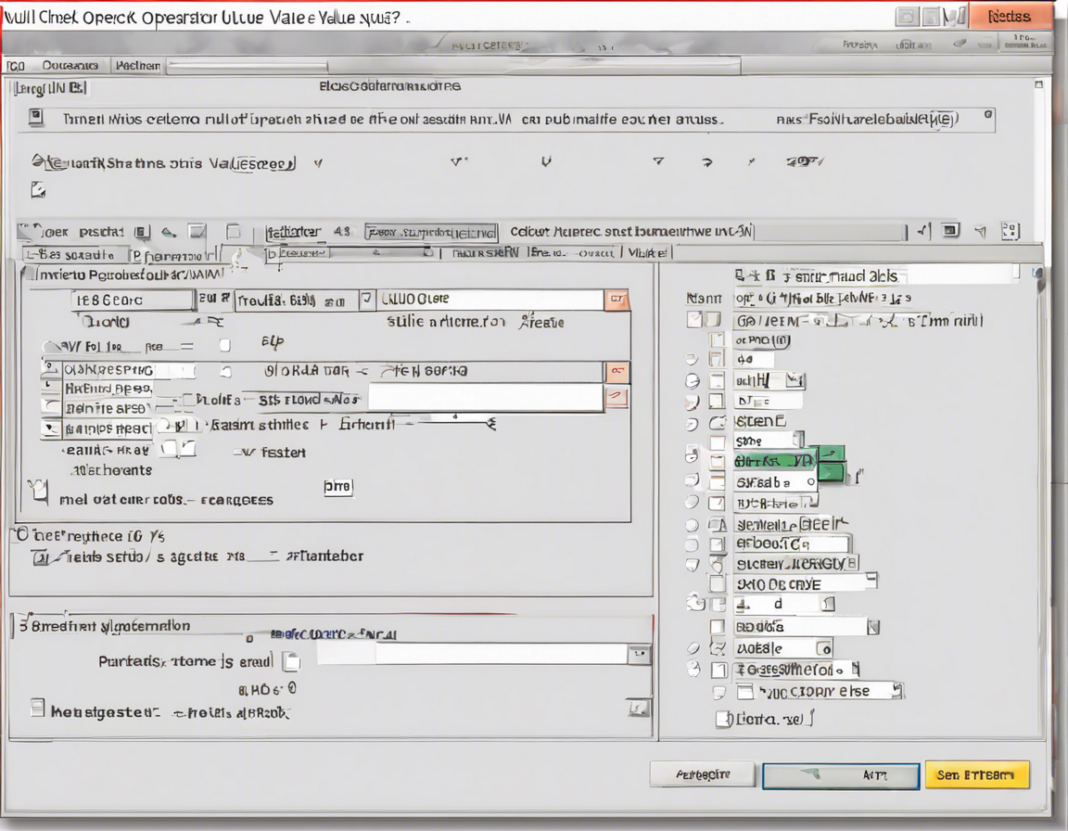Null values are a common challenge in programming languages and can lead to unexpected errors and bugs if not handled properly. In many programming languages, including Java, C#, and Python, null represents a variable with no value assigned to it. The presence of null can often lead to NullPointerExceptions or other runtime errors that can crash the program. To address this issue, many programming languages have introduced the null check operator to safely and efficiently handle null values.
Understanding the Null Check Operator
The null check operator is a feature that allows developers to check whether a variable is null before accessing its properties or methods. This helps prevent NullPointerExceptions and allows for more robust and error-resistant code. The syntax of the null check operator may vary depending on the programming language, but the concept remains the same: it evaluates the variable for null before proceeding with the operation.
Java
In Java, the null check operator is denoted by the “ ?.” operator. It is also known as the Safe Navigation Operator. Here’s an example of how it is used in Java:
java
String text = null;
int length = text?.length();
System.out.println("Length: " + length);
In this example, the null check operator “ ?.” ensures that the length() method is only called if text is not null. If text is null, the expression text?.length() will return null instead of throwing a NullPointerException.
C
In C#, the null check operator is denoted by “ ?.” operator similar to Java. It is also known as Null-conditional Operator. Here’s an example of how it is used in C#:
csharp
string text = null;
int? length = text?.Length;
Console.WriteLine("Length: " + length);
In this example, the null check operator “ ?.” protects the Length property from being accessed if text is null. It returns null if text is null rather than throwing a NullReferenceException.
Python
In Python, the null check operator is denoted by the “ is not None operator. Here’s an example of how it is used in Python:
python
text = None
length = len(text) if text is not None else None
print("Length:", length)
In this example, the is not None operator checks if text is not None before calling the len() function. If text is None, length will be None instead of throwing an AttributeError.
Benefits of Using the Null Check Operator
The null check operator offers several benefits when handling null values:
-
Prevents NullPointerExceptions: By checking for null before accessing a variable’s properties or methods, the null check operator helps prevent NullPointerExceptions and other runtime errors.
-
Improves Code Readability: The use of the null check operator makes the code more readable and self-explanatory. Developers can easily identify where null values are handled.
-
Reduces Error-Prone Code: By incorporating the null check operator in the code, developers can write more resilient and robust code that is less prone to errors and crashes.
-
Simplifies Error Handling: Instead of relying on try-catch blocks to handle NullPointerExceptions, developers can use the null check operator to proactively manage null values.
Best Practices for Using the Null Check Operator
To effectively leverage the null check operator in your code, consider the following best practices:
-
Use It Sparingly: While the null check operator is a valuable tool, overusing it can lead to complex and unreadable code. Only use it when necessary to handle null values.
-
Combine with Null Coalescing Operator: In some languages like C#, you can combine the null check operator with the null coalescing operator (??) to provide a default value for null variables.
-
Follow Consistent Coding Standards: Establish coding standards within your team on when and how to use the null check operator to ensure consistency and clarity in the codebase.
-
Test Thoroughly: After implementing the null check operator, conduct comprehensive testing to ensure that null values are handled correctly and that the code behaves as expected.
Frequently Asked Questions (FAQs)
- What is a null check operator?
-
A null check operator is a feature in programming languages that allows developers to check whether a variable is null before accessing its properties or methods.
-
Why is handling null values important?
-
Handling null values is crucial to prevent NullPointerExceptions and runtime errors that can crash the program. It improves code reliability and error handling.
-
Which programming languages support the null check operator?
-
Languages like Java, C#, Python, and Kotlin support the null check operator to handle null values efficiently.
-
Can the null check operator be nested?
-
In languages like Java and C#, the null check operator can be nested to handle multiple levels of potential null values.
-
Is the null check operator a replacement for try-catch blocks?
- The null check operator is not a replacement for try-catch blocks but can be used to proactively handle null values before they cause exceptions.
In conclusion, the null check operator is a valuable tool for developers to handle null values efficiently and prevent runtime errors in their code. By incorporating best practices and following coding standards, developers can write more robust, readable, and error-resistant code that can better handle unexpected scenarios.

